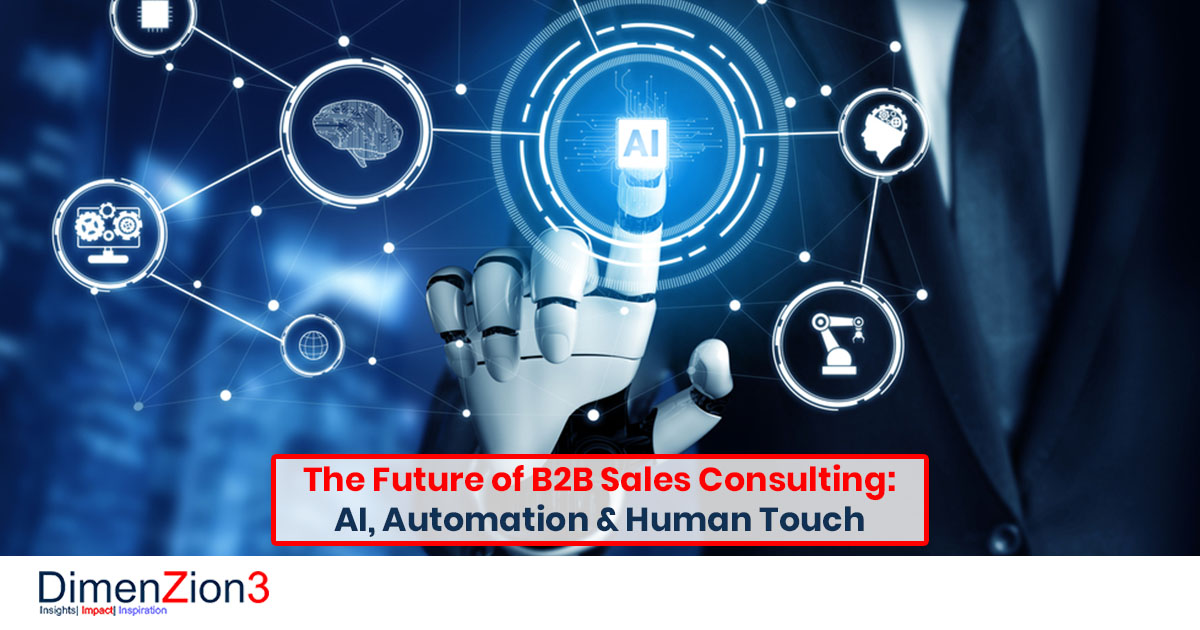How AI Automation For B2B boosts customer experience in B2B operations
The Future of B2B: Harnessing AI Automation to Drive Success
The landscape of B2B is moving as firms progressively turn to AI automation for calculated benefit. This change assures to enhance effectiveness and customer interaction via sophisticated modern technologies. The assimilation of these devices is not without its difficulties. Understanding just how businesses can browse this developing terrain will certainly be important for future success. What variables will figure out the effectiveness of AI in this market? The responses may redefine conventional company versions.
Recognizing AI Automation in B2B
As businesses significantly seek effectiveness, comprehending AI automation in B2B comes to be vital. Growth Systems For B2B. AI automation describes the use of artificial intelligence modern technologies to boost and simplify service processes. In the B2B sector, this includes the integration of AI tools to take care of jobs such as information evaluation, client interactions, and supply chain operations. By leveraging artificial intelligence and all-natural language processing, companies can boost accuracy, minimize human mistake, and speed up decision-making. AI automation promotes the handling of huge volumes of data, allowing services to draw out valuable understandings and enhance their operations. As organizations navigate this technological landscape, a complete grip of AI automation's abilities will empower them to remain responsive and competitive to market needs
Trick Benefits of AI Automation for Companies
While many businesses face boosting functional needs, AI automation presents various advantages that can significantly boost their performance. One significant benefit is efficiency; AI systems can do recurring jobs faster and with higher precision than people, therefore minimizing mistakes and releasing up workers for more tactical initiatives. Furthermore, AI automation makes it possible for data-driven decision-making by assessing huge datasets promptly, giving understandings that educate business techniques. Price decrease is one more essential benefit, as automation decreases labor prices and optimizes source allowance. AI can enhance scalability, allowing businesses to adjust to market adjustments quickly. Ultimately, the assimilation of AI automation cultivates innovation, making it possible for business to stay competitive in a rapidly progressing landscape.
Changing Client Experiences With AI
AI is improving customer experiences by making it possible for personalized communications and enhancing interaction. With the application of predictive analytics, organizations can prepare for consumer requirements and preferences, causing extra tailored solutions. In addition, streamlining assistance procedures with AI innovation enhances efficiency and complete satisfaction, ultimately transforming the total consumer journey.
Personalized Communications and Involvement

Anticipating Analytics Execution
As companies significantly seek to enhance consumer experiences, executing predictive analytics has actually arised as a critical approach in the B2B market. By leveraging data-driven understandings, companies can expect customer demands and preferences, allowing them to tailor their offerings a lot more successfully. Predictive analytics utilizes historic data and advanced formulas to forecast future actions, allowing businesses to determine potential obstacles and opportunities. This positive strategy not just improves consumer contentment however likewise promotes commitment by providing prompt and appropriate options. Furthermore, predictive analytics aids in source allowance, making sure that advertising efforts are focused on high-value potential customers. Eventually, the combination of anticipating analytics furnishes B2B business with the tools required to change client communications and drive long-lasting success in a significantly affordable landscape.
Simplifying Support Processes
Enhancing consumer experiences in the B2B market extends beyond predictive analytics; enhancing assistance processes plays a vital function. By integrating AI-driven solutions, companies can automate regular queries and enhance action times, leading to increased consumer fulfillment. Chatbots and online assistants supply 24/7 assistance, attending to client needs without delay and reducing the burden on human representatives. This automation allows teams to focus on intricate issues, cultivating more significant interactions. In addition, AI tools can examine support data to recognize fads and locations for improvement, making certain continuous enhancement of solution high quality. Minarik AI. As companies embrace these modern technologies, they position themselves as responsive and customer-centric, ultimately driving loyalty and service growth in a progressively affordable landscape
Enhancing Operations and Processes
Enhancing procedures and processes in B2B settings is essential for enhancing general performance. By enhancing process effectiveness and automating routine jobs, organizations can decrease manual mistakes and totally free up important sources. This shift not only enhances productivity however likewise enables teams to concentrate on critical campaigns that drive development.
Optimizing Workflow Effectiveness
Enhancing workflow performance is vital for organizations seeking to reduce operational costs and boost productivity. By analyzing existing processes, companies can recognize traffic jams and redundancies that prevent performance. Carrying out streamlined procedures improves interaction and cooperation amongst groups, making sure that tasks are finished more promptly. Using data-driven insights makes it possible for companies to make informed decisions that improve procedures additionally. Furthermore, adopting incorporated modern technologies can assist in smooth info flow, reducing the threat of mistakes and hold-ups. As services welcome these changes, they not only foster a more dexterous workplace however additionally position themselves to respond promptly to market needs. Ultimately, concentrating on process efficiency allows companies to allot resources effectively, driving long-lasting success in a progressively competitive landscape.
Automating Routine Jobs
Many organizations are increasingly turning to automation to handle routine tasks, acknowledging its possible to considerably boost operational efficiency. By deploying AI-driven services, companies can simplify repetitive tasks such as data entrance, invoice processing, and customer inquiries. This change not just reduces human error however additionally releases up useful staff member time, permitting staff to concentrate on strategic efforts and value-added tasks. Furthermore, automation can improve response times and solution consistency, leading to improved client contentment. As companies navigate an affordable landscape, leveraging automation for routine tasks comes to be essential for maintaining and enhancing operations agility. Eventually, this method cultivates development and drives growth, positioning companies for lasting success in the developing B2B setting.
Enhancing Decision-Making With Data Insights
As companies browse a significantly intricate landscape, leveraging information insights becomes necessary for educated decision-making. Minarik AI. By using ai-driven devices and sophisticated analytics, organizations can change raw information into actionable intelligence. This allows them to recognize trends, forecast market adjustments, and optimize methods based on real-time info. Improved decision-making procedures count on information visualization techniques, enabling stakeholders to easily analyze complex datasets and make swift, evidence-based selections. Furthermore, insights originated from consumer habits and market dynamics equip firms to customize their offerings, improving consumer fulfillment and driving development. Ultimately, utilizing data insights not only boosts decision-making efficiency however also positions organizations to continue to be competitive in a quickly developing marketplace
Getting Rid Of Obstacles in AI Execution
AI implementation holds the assurance of considerable functional improvements, companies commonly deal with a myriad of obstacles that can impede progression. Secret challenges consist of data top quality concerns, as many ventures battle with insufficient or inconsistent datasets needed for reliable AI training. Additionally, resistance to transform within the workforce can hinder the adoption of AI technologies, as employees might fear task variation or lack the essential abilities. Budget plan restraints likewise offer an obstacle, restricting financial investment in the required facilities and skill. Additionally, integrating AI systems with existing processes can be intricate, demanding considerable time and resources. Getting rid of these difficulties necessitates a strategic technique that consists of complete training, modification management, and a dedication to continuous improvement in AI efforts
Future Fads: The Next Frontier in B2B Automation
While the landscape of B2B automation remains to progress, emerging trends are positioned to redefine just how companies operate. The combination of sophisticated expert system will assist in more individualized client experiences, permitting organizations to tailor services exactly to customer needs. Additionally, the surge of anticipating analytics will make it possible for companies to expect market changes and optimize decision-making procedures. Automation of regular tasks through robot procedure automation (RPA) will certainly improve performance, lowering functional costs considerably. Furthermore, the adoption of blockchain modern technology promises improved transparency and important site security in purchases. As these innovations gain grip, companies will increasingly take advantage of AI-driven understandings to promote collaboration, improve supply chains, and improve total efficiency, noting a transformative shift in the B2B landscape.
Regularly Asked Concerns
What Sorts Of Services Can Benefit The Majority Of From AI Automation?

Exactly How Can Small Companies Execute AI Automation Effectively?
Small companies can carry out AI automation efficiently by identifying repetitive jobs, selecting user-friendly devices, making sure appropriate training for employees, and progressively incorporating services to optimize process while keeping an eye on performance and readjusting techniques based upon comments.
What Are Usual Mistaken Beliefs Concerning AI in B2B?
Common false impressions regarding AI in B2B include the idea that it is only for big enterprises, that it assures instant outcomes, and that it can totally replace human decision-making instead of augmenting it.
Exactly How Does AI Automation Impact Worker Responsibilities and Job Protection?
AI automation reshapes staff member roles by enhancing repetitive tasks, promoting efficiency and advancement. While some anxiety task loss, it usually creates chances for upskilling and new settings, inevitably enhancing task protection through added value and performance.
What Skills Are Needed to Handle AI Automation Projects?
To take care of AI automation tasks, individuals need solid logical abilities, task management know-how, proficiency in information analysis, understanding of artificial intelligence principles, reliable communication abilities, and adaptability to swiftly changing technological environments. These skills ensure successful application.
As businesses progressively seek effectiveness, comprehending AI automation in B2B comes to be crucial. AI automation facilitates the handling of huge volumes of data, allowing companies to draw out important insights and optimize their operations. While lots of organizations grapple with raising functional needs, AI automation provides various benefits that can substantially boost their efficiency. Automation of regular tasks through robot procedure automation (RPA) will certainly boost performance, minimizing operational costs considerably - Growth Systems For B2B. Manufacturing, logistics, and client solution businesses can benefit most from AI automation